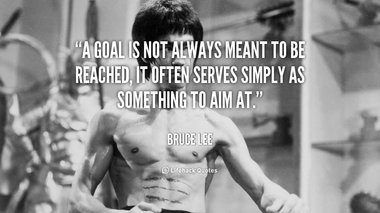At some point, everyone feels like they aren’t getting enough support. Whether it’s support from their friends, from their family, or from someone whose opinion really, really counts (Generally they don’t. More on this momentarily.), lack of support can be a devastating feeling. The urge to scream, “You don’t understand what I’m doing/feeling/going through!” can be absolutely overwhelming. Luckily for us, there are ways to counter this tendency. These 10 things you can do if you feel lack of support will not only help you achieve more and feel better, but can also help you communicate your needs and goals better.
1) Expand your support network.
Sometimes we make the mistake of trying to seek help from people who don’t know the first thing about what we’re trying to do. This leads to a situation where neither side feels good about the outcome. Going to the same friends to address the same basic problems can be just as bad. In these situations, a change of perspective might be needed. If you’re a writer, you should seek out other writers who don’t have a vested interest in you to discuss your problem with. The same goes if you’re a carpenter, a lawyer, or a computer programmer. This can put you on the right track and help you gain some new friends at the same time!
2) Sharpen your own coping skills.
This is the OPPOSITE of what coping looks like.Think for a second about how you deal with disappointment. Do you take it on the chin, or does it send you running into your bedroom with a “migraine” that lasts three days? If it’s the latter, you probably need to develop some better coping skills. Maybe you need to be a little more physical, by punching a soft pile of pillows, for example. (It is definitely not recommended that you take your frustrations out physically on the object of your frustrations. This is a great way to land in jail.) You can also try meditation, deep breathing, or walking. Sometimes we just need a little distance to reflect on a situation before we can find the best way around it.
3) Try keeping a journal.
Lack of support often comes from lack of effective communication. Write down what’s frustrating you and why you feel like you aren’t getting the support you need. Then try writing down possible solutions, such as: “Talked to Mitch about my worries about the wedding. He doesn’t like my fiancee, so he was pretty unsympathetic. Maybe talk to Trish or Richard instead.” If nothing else, the act of writing it down will eliminate some of the immediacy of the problem, letting you look at it more calmly.
4) Analyze the reason you don’t feel supported.
Most people have pretty rigid conceptual models of what can and cannot be done, and they tend to look at anything that crosses these boundaries askance. Are you trying to do something so far out of the ordinary that most people cannot comprehend it? Or are you simply asking for too much from the people around you? You can’t expect everyone else to take care of your business while you chase a dream. If you’re trying to do this, then you need to start giving back before you can expect any support in return.
5) Keep it simple.
Lack of support often equals lack of communication. The other person just doesn’t “get it.” If you’re describing your great new invention in terms that would make Tesla blink and ask for clarification, the reason they don’t get it is likely that you’re overcomplicating the matter. “This device will make bread hot and crispy at extremely high temperatures extremely rapidly” is a poor way to say what you really mean. “This will toast bread in 2.5 seconds.”
6) Listen to what you’re told.
It’s entirely possible that you already have the information you need to make a decision, but you aren’t listening because it’s contrary to what you want to accomplish. If enough people tell you the same thing, it’s time to stop and mull it over. Chances are, they are speaking from experience that they are trying to help you benefit from.
7) Ask yourself if your goal is really attainable.
The hardest thing in life to hear is, “You’ll never ___________ because ___________.” However, if you are told this, stop and think. Are you trying to do something that goes beyond the norm but you can realistically expect to achieve, or are you trying to do something utterly preposterous, like become a neurosurgeon even though you have palsy in your hands? Sometimes we have to switch directions or settle for something less. In this case, it’s not that your friends and family don’t support you, but they are being more realistic about how far you can go than you are.
8) Try to understand why they don’t support you.
Sometimes people say one thing, only to have someone hear something entirely different. This is where establishing a dialogue comes in. Getting to understand where the other person is coming from is a key factor in learning what you can do to obtain their support. This requires some empathy and maybe even a little salesmanship, but it’s well worth it in the end, and will strengthen your relationship, too.
9) Ask yourself what you would tell you if you were them.
One of the most difficult things to admit is that we all sometimes give good advice, but are rubbish about taking it. Put yourself in the other person’s position and ask yourself, “If I saw So-and-so doing this, would I support him/her or warn against it?” This may not be a fun way to understand others, but it can help you see the issue from the other side.
10) Change your approach, your goals, your behavior, or all three.
No one wants to hang around with a self-aggrandizing jerk. If you come off as arrogant, if your goal is set too high for even gods to achieve reasonably, or if you demand support and assistance instead of asking for it, it is past time to make some changes. People appreciate being asked for help, but no one likes to have their help simply assumed. Understanding how, when, and who to approach for help is important to getting the support you need to achieve your goals!


















































